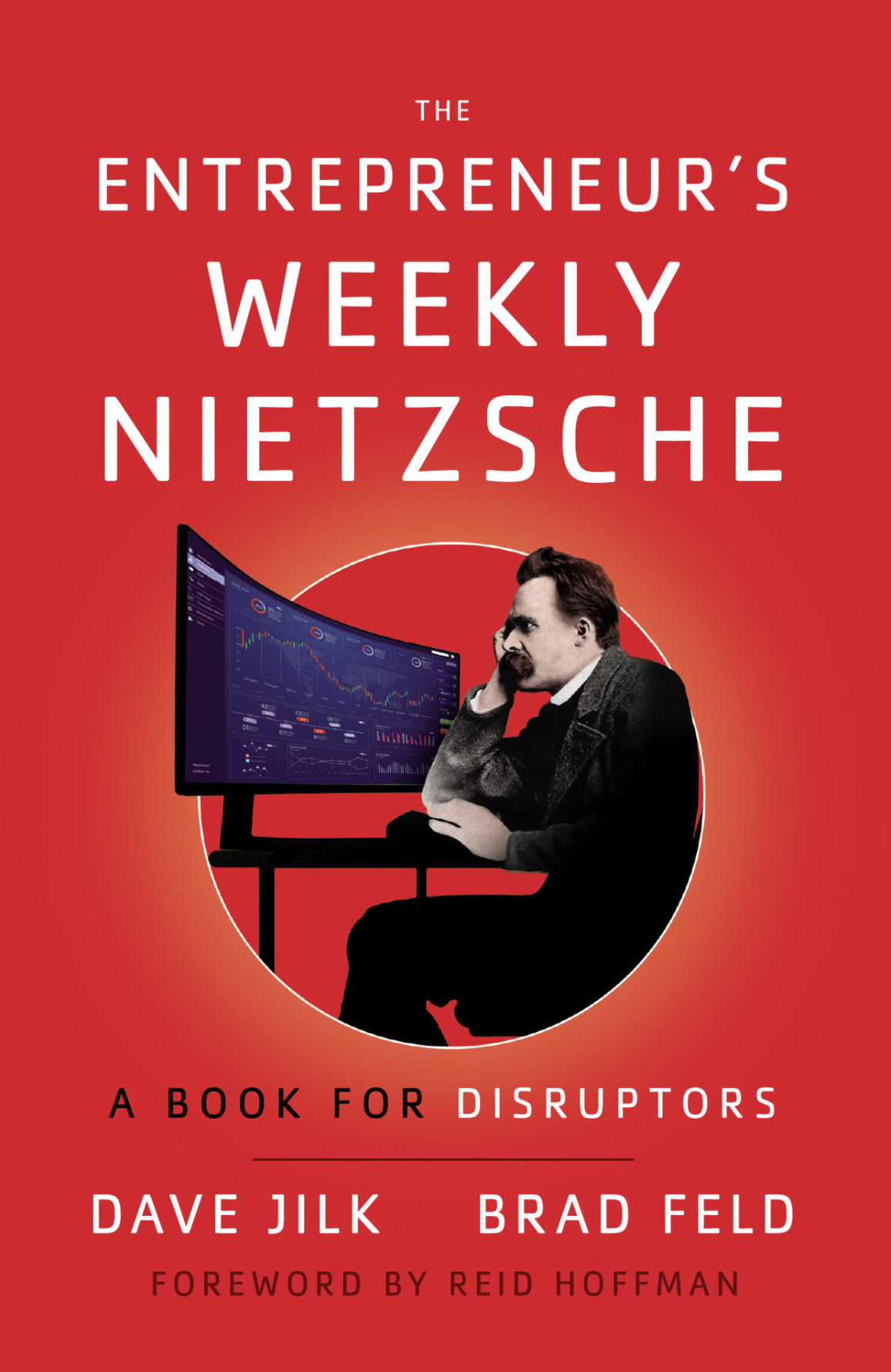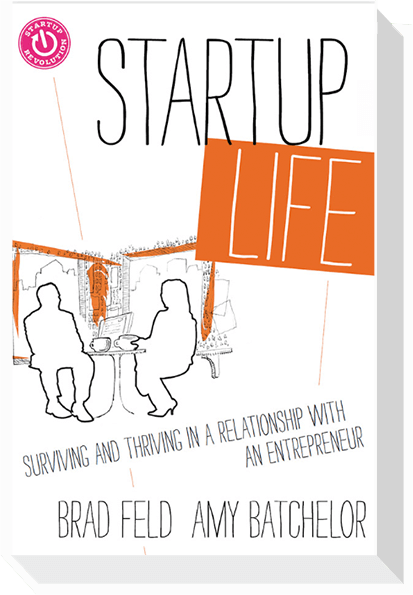Your Spouse Is Your First Investor
This is a guest post from Scott Yates and Kathy Yates. Like me and Amy, they are clearly partners in much of how they live their entrepreneurial life. Also like us they are thinking about these issues out loud, us with our upcoming book, Startup Life: Surviving and Thriving in a Relationship with an Entrepreneur, and Scott and Kathy with this blog post:
Any entrepreneur will tell you that that the first investor is often the hardest one to get. What we’ve found is that there’s one special kind of investor you have to get a commitment from before even that first cash investor, and that’s your spouse.
While your spouse won’t be signing a term sheet, there’s little doubt that your spouse will be invested in your success. Before you can go out and get investors, or even customers, we think it’s important that you convince the person closest to you that you have a good idea, a good market, that the opportunity is ripe, and that you are the one to go after it.
Think about it. If you are starting a new venture, there’s a good chance that your spouse will be investing in the idea pretty directly by supporting you as you work initially without a paycheck. Or the spouse may be sacrificing the time that might have been spent enjoying life with you as you spend all your nights and weekends working on your business.
And it’s a risky investment. If you get regular investors, they will put some money and time into your business, but if the business fails that investor isn’t going to lose much, really. Investors build their funds with the idea that a certain percent of the investments will return nothing.
With your spouse’s investment, however, the risk is dramatic. Retirement funds, college funds and the like are just the start. Add in all the time they don’t get to spend with you that they never get back. There’s a reason we use the same verb for money and time — spend — and entrepreneurs are asking a huge spend of one or the other and most often both.
In short, it’s a hard sale. Brutally hard.
Some entrepreneurs don’t make the sale — they cheat. They essentially steal that money and/or that time because they think they won’t be able to make the sale. Suddenly a spouse looks up and two years and/or all the savings are gone and they don’t really even know what happened.
Our view is that you need to make that sale. You need to convince that first investor to go all in with you.
We speak from the experience of three businesses that Scott has started and Kathy has “invested” in.
In all of them, Scott tried hard to treat Kathy has an investor, making sure that she bought into the vision, that she understood the potential risks and rewards. He told her about the market analysis, and shared with her the struggles. Heck, as Scott struggled with a name for the new company, Kathy even came up with a brilliant one: Blogmutt.
She was no pushover, either. Scott worked hard at convincing her that companies had a need for blog content, and that it was potentially an idea that could generate $100 million in annual sales if run just right.
In part because Kathy did such a good job in her due diligence, Scott was much better prepared to go out and talk to investors and when he did he found top notch investors for his seed round.
Now when Kathy sees the Blogmutt logo hanging proudly on the Walnut Street offices in Boulder, and she knows that hundreds of businesses from around the world count on Blogmutt for blog content, she has the special kind of pride that investors know well. It’s a pride that comes with knowing that she played a significant part of the success of the entrepreneur. Like other investors, she knows that she’s not in the trenches, but she helped arm and prepare him physically and emotionally to get into those trenches and fight fight fight.
Imagine if she’d been opposed to the idea from the start.
The idea of marriage is that you share success and failure. If an entrepreneur doesn’t work hard to convince a spouse of the merit of an idea, they are both robbed of the joy of celebrating success together. If the business suffers a setback, the entrepreneur can’t take solace with the one person who is supposed to always be there.
And on the spouse’s side… It’s good to look with a critical eye at the idea of your entrepreneur spouse, but not too critical. Remember, this is the dream of your husband or your wife. This is how they want to change the world.
If an idea is a little bit crazy sounding, that doesn’t mean that you should oppose it out of hand. Imagine if you’d said no to a guy who came home one day and said that he thought people should be able to rent out a spare room in their homes to total strangers. If you talked a spouse out of starting that idea, you just robbed the world of Airbnb and your own family of enough money to buy your own island. The ideas may be a bit crazy, but that doesn’t mean they won’t work
Yes, it should have some research, and yes the idea should play in a big market. If your spouse has a dream of fixing things for all of the left-handed bocce ball enthusiasts in the Upper Peninsula… maybe encourage that entrepreneur to dream a bit bigger.
But once your spouse has an idea that’s got potential, it’s time for you to switch from “prospective investor” where all you have is questions to “investor” where you can still ask questions but the questions come from a place where it’s absolutely clear that you are 100 percent committed to the success of the entrepreneurial vision.
If not, you are just a person standing between the dreamer and the dream.
Do you really want to be that person?








